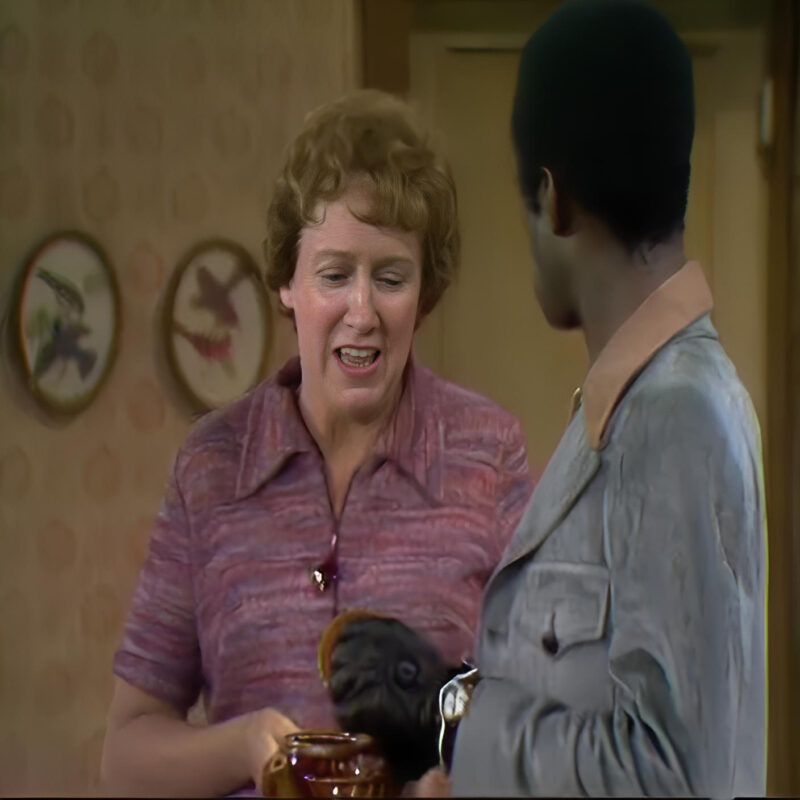
Jean Stapleton, immortalized as Edith Bunker in the groundbreaking 1970s sitcom “All in the Family,” recently shared her complex feelings about the role that brought her fame and how her real life diverged sharply from her character’s.
Jean Stapleton’s portrayal of Edith Bunker—a slow-witted, submissive housewife—made her a household name. While today’s television often showcases strong, independent women, Edith’s character was a stark contrast, embodying the traditional, oppressed housewife. Stapleton, however, did not share Edith’s meekness. She often spoke out about her disdain for the character, hoping American housewives did not see themselves in Edith. Despite her personal feelings, the role left an indelible mark on her career.
The Rise to Fame and Struggles with Edith
Born Jeanne Murray on January 19, 1923, Jean Stapleton was a Wadleigh High School graduate and trained in off-Broadway productions at the American Theater Wing. Her Hollywood career blossomed, earning her eight Emmy Award nominations and winning three. Despite her success, Stapleton was vocal about her unease with the character of Edith. She once said, “What Edith represents is the housewife who is still in bondage to the male figure, very submissive, and restricted to the home.”
Stapleton received a significant amount of fan mail, much of it positive, though some viewers criticized Edith’s portrayal. However, Stapleton defended her character’s honesty and compassion, saying, “She has her good points – she is very human, very honest, very compassionate, very intuitive, and in most situations, she says the truth and pricks Archie’s inflated ego.”
Balancing Fame and Family
Away from the spotlight, Jean Stapleton led a life quite unlike Edith’s. She was married to William H. Putch, a producer and director at Totem Pole Playhouse, and they had two children, Pamela and John. Stapleton described her husband as the opposite of Archie Bunker, saying, “My husband doesn’t have the male chauvinist attitude that the woman’s place is in the kitchen. He likes to be married to a woman who has more interests outside the home.”
Putch supported Stapleton’s career and even took on domestic roles, cooking and caring for their children. Their marriage was a partnership of equals, a stark contrast to the Bunkers’ dynamic. They met during her tour in Maryland, became pen pals, and had a courtship lasting eight years before marrying in 1957.
A Personal Tragedy and Enduring Love
The couple’s happiness was tragically cut short when Putch died of a heart attack at 60. He had been battling cancer and was part of an experimental treatment program. Stapleton continued to perform in “The Showoff,” a play her husband was directing at the time of his death, to honor his memory.
Stapleton never remarried, choosing to remain a widow for the rest of her life. She passed away on May 31, 2013, at her New York City home at the age of 90. Her death prompted tributes from colleagues, including “All in the Family” creator Norman Lear, who celebrated her life and career.
Legacy Beyond Edith Bunker
Jean Stapleton’s legacy extends far beyond Edith Bunker. While she will always be remembered for her iconic role, her real-life story of love, dedication, and resilience paints a fuller picture of a remarkable woman. Her contributions to television and her portrayal of a complex character like Edith continue to resonate, highlighting the contrast between her on-screen persona and her off-screen strength and independence.
In the end, Jean Stapleton’s life was a testament to her talent and her enduring love for her family. Her portrayal of Edith Bunker may have brought her fame, but it was her real-life grace and resilience that truly defined her legacy.
